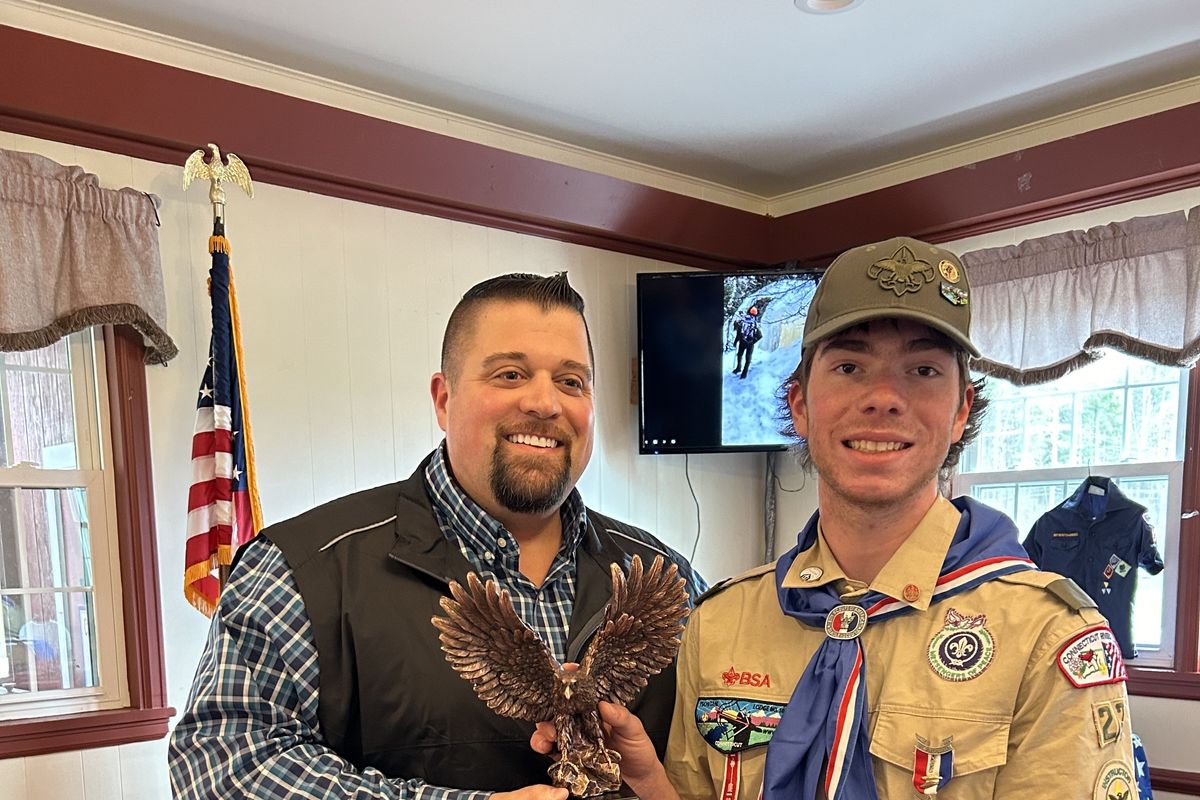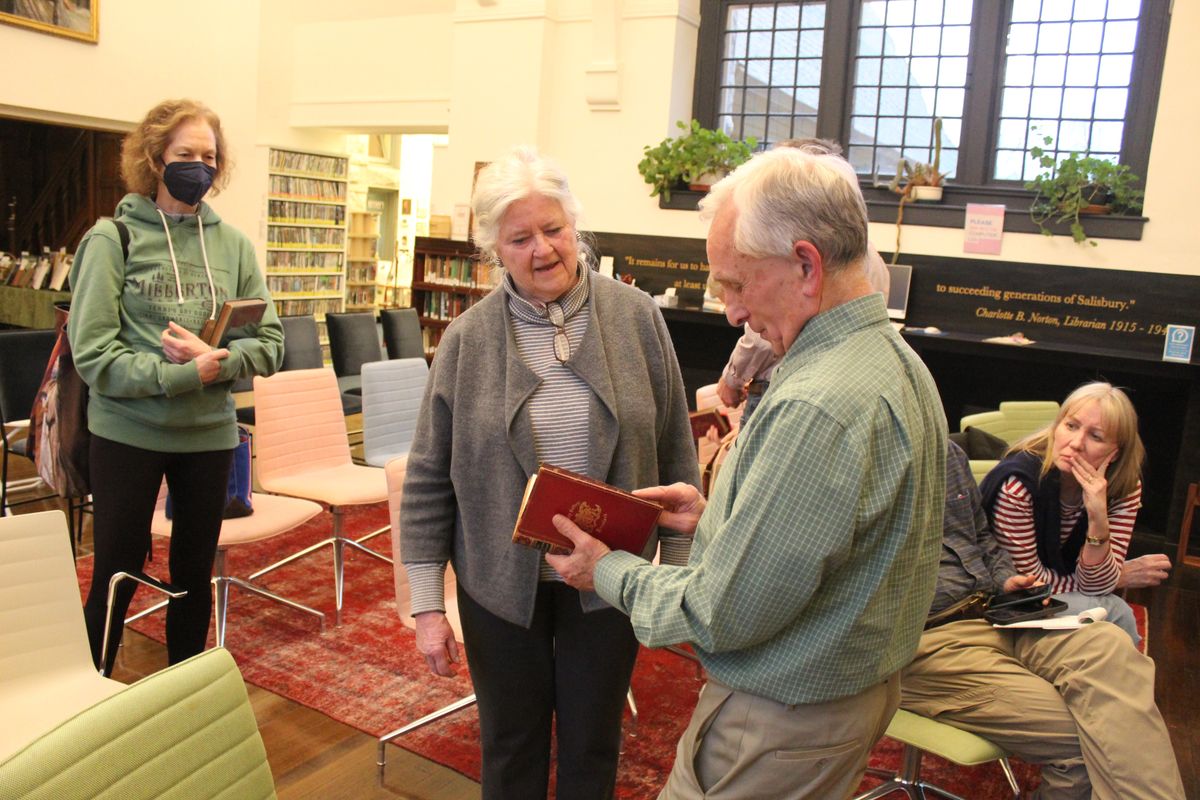Latest News
Incumbent Jahana Hayes (left) and Republican challenger George Logan appeared for the Fifth Congressional District debate at Central Connecticut State University October 20, 2022.
Mark Mirko/CT Public
As national groups and leaders start turning their attention to Connecticut’s most competitive House race, the candidates for the 5th Congressional District are seeing an uptick in fundraising ahead of a likely rematch.
In the first three months of the year, Republican candidate George Logan raised slightly more money than U.S. Rep. Jahana Hayes for the second fundraising quarter in a row. But the Democratic incumbent still maintains a significant cash advantage, according to campaign finance reports filed with the Federal Election Commission for the first quarter of 2024.
Logan, a former state senator who narrowly lost to Hayes in 2022, brought in more than $590,000 from January through the end of March. During that same time period, he spent $220,000. Logan nearly doubled his bank account since the last fundraising quarter, and has about $740,000 on hand.
Hayes, meanwhile, raised more than $560,000 over the past three months and spent about $162,000. She has about twice the amount of money in the bank compared to Logan, going into the second fundraising quarter of 2024 with more than $1.4 million.
Hayes defeated Logan in November 2022 by 2,004 votes, and the anticipated rematch is on track to get the same national attention in November.
Logan, the son of Guatemalan immigrants who had roots in Jamaica, got into state politics in 2016 when he won his first election and unseated a longtime Democratic state senator. He won again in 2018, but narrowly lost reelection in 2020.
A Republican from Connecticut has not served in the U.S. House since 2009. The last Republican to represent the 5th District was former Rep. Nancy Johnson, who lost reelection in 2006 to Democrat Chris Murphy, who is now a U.S. senator.
Hayes, who became the first Black woman to represent Connecticut in Congress, announced last August she would seek a fourth term. Prior to her election, she was a teacher in Waterbury and was named the 2016 National Teacher of the Year.
While Hayes won her two previous elections by big margins in 2018 and 2020, her most recent race against Logan was one of the most competitive and expensive in years. He came close to a win during a midterm year, but is now running during a presidential election year. Biden easily won the state and the 5th District in 2020.
With upwards of $12 million in outside spending in 2022, money is once again expected to flood Connecticut’s 5th District this year. But so far, fundraising has largely been on the candidate side.
The Congressional Leadership Fund, the top super PAC for House Republicans, has targeted a number of competitive races including in Connecticut. Similar to the 2022 cycle, Logan will likely get major financial resources to compete against Hayes ahead of November.
In the most recent fundraising quarter, CLF donated $10,000 directly to Logan’s campaign, but the group is expected to play more of an indirect role like the last election cycle when it runs ads on his behalf, though super PACs cannot coordinate with a campaign or candidate.
Both Hayes and Logan got donations from a number of members of Congress in the past fundraising quarter, including from leadership within their respective parties.
U.S. Rep. Katherine Clark, D-Mass., who is House minority whip, donated to Hayes. Meanwhile, House Majority Whip Tom Emmer, R-Minn., and House Republican Conference Chairwoman Elise Stefanik’s leadership PAC both contributed to Logan.
Hayes also got a range of support from political action committees representing labor unions and agricultural groups that are likely invested in reauthorizing the Farm Bill.
As the race heats up, both parties have been trying to cast one another as extremists and drawing early contrasts.
Democrats have raised concerns about Johnson’s voting record being too extreme for a blue state like Connecticut and moderate Republicans, noting his opposition to same-sex marriage being codified into federal law, support for a national ban on abortion after 15 weeks, and efforts to overturn the 2020 presidential election results.
Hayes has made fundraising appeals since Johnson’s visit, tweeting that his stance on some issues “further solidifies my opponent’s embrace of the most extreme MAGA policies,” referring to former President Donald Trump’s slogan “Make America Great Again.”
When asked if Johnson’s record and support for Trump hurts Logan and other GOP candidates in the state, Republicans have pushed back, seeking to link Hayes’ voting record to progressive members of Congress known as “The Squad.”
“We know we’re up against the most entrenched Washington special interest groups who have made it clear that Connecticut’s Fifth Congressional District is a must win for them, and they will spend whatever it takes to maintain the status quo,” Logan said.
Full story on
www.ctmirror.org
Keep ReadingShow less
Region One announces new Super
Apr 24, 2024
Melony M. Brady-Shanley
Provided
FALLS VILLAGE — Melony M. Brady-Shanley is the new Superintendent for Region One. She will take over from Superintendent Lisa Carter on July 1.
The announcement was made April 17.
The six town school boards and the Region One Board of Education met last week to confirm the appointment. The search committee interviewed eight candidates for the position.
Brady-Shanley is the current superintendent of Winchester Public Schools, and guided Winchester out of state receivership.
Prior to Winchester, she served briefly as Assistant Chief Talent Officer in New Britain. Between 2001 and 2016, Mrs. Brady-Shanley taught, coached, and served as principal at the elementary and secondary levels in the Hartford Public Schools. She also served as an academic specialist in the University of Connecticut’s Educational Leadership program.
Brady-Shanley graduated from Slippery Rock University with a Bachelor of Science in Education, and earned degrees in Educational Leadership and a Superintendent Certificate from Central Connecticut State University. She lives in West Hartford.
Keep ReadingShow less
Troop 22’s newest Eagle Scout
Apr 24, 2024
Provided
On Saturday, April 20, Liam MacNeil earned the rank of Eagle Scout at VFW Couch Pipa Post 6851. North Canaan First Selectman Brian Ohler attended the ceremony to present the honor to MacNeil and acknowledge his dedication to the community.
Ken Gloss took a look at books for Mary Sullivan and Jody Potter (left) after his talk at the Scoville Memorial Library on April 17.
Patrick L. Sullivan
SALISBURY — Ken Gloss, proprietor of the Brattle Book Shop in Boston and a fixture on public television’s “Antiques Roadshow” entertained a bevy of bibliophiles at the Scoville Memorial Library Wednesday, April 17 with stories from the book trade.
He also gave quick assessments of books to about a dozen people after his remarks.
The Brattle Book Shop has had a somewhat peripatetic existence since its founding in 1825, with seven different locations. It has been run by the Gloss family since 1949, when Ken Gloss’ father George took over.
Gloss said the Brattle moved to a location on West Street in Boston which burned in 1980. Undaunted, Gloss moved the shop to its present location a few doors away, and Bostonians (including Mayor Kevin White) donated books to restock.
Gloss said he and his staffers go out on buying trips almost daily.
Some destinations are opulent Some are humble. And there’s no telling what awaits.
One call was to an elderly woman in a small house with peeling paint. Gloss took a look at the books, which were nothing special.
Then he noticed the watercolors. “Oh, those are nice.”
“Oh yes” said the elderly lady. “They’re all [J.M.W.] Turners.”
Gloss said he or his staff get hundreds of calls about books.
“Most are routine, I can give them an answer off the top of my head.”
But every so often there’s a call like the one from the woman who announced, “President Kennedy slept with me!”
Turned out the woman worked for the Kennedy family as a nurse. The infant JFK did indeed sleep with her in her professional capacity.
“She had handwritten letters from the President,” Gloss said, explaining that for collectors handwritten letters are particularly prized.
“As far as I know they still have them. They can’t sell them. They’re part of their life.”
George Gloss died in 1985, and Ken Gloss took over, and in the process hired a young man who seemed promising.
A customer entered, browsed around and asked for an item they did not have in stock but could likely obtain.
The customer said he would come back and left.
The new assistant remarked, casually, “That was J.D. Salinger.”
Startled, Gloss asked how he knew.
“I used to date his daughter.”
Gloss said he enjoys doing the television program and traveling to parts of the country he might not otherwise get to.
He revealed some insider information, such as this tidbit:
“We don’t get paid. At all. And there’s no guarantee we’ll get on TV.”
An ideal day on the Antiques Roadshow trail has him rising early, spotting someone with a promising item, alerting the producer, and filming the encounter.
“So by 9 a.m. we’re finished. It makes the day go easy.”
On the other hand, “if by 4 p.m. we haven’t taped, we’re probably not going to.
The element of surprise remains constant from book shop to TV, however.
One man came into the TV taping and explained he had worked as an airplane pilot for Pope John Paul II. He had a photo of the Pope signing his Bible to prove it.
This was moderately interesting.
Then the man added, offhandedly, “Oh, I’ve got the Bible, too.”
After his remarks, Gloss examined books and other items from about a dozen people, most of whom came away happy.
Keep ReadingShow less
loading














